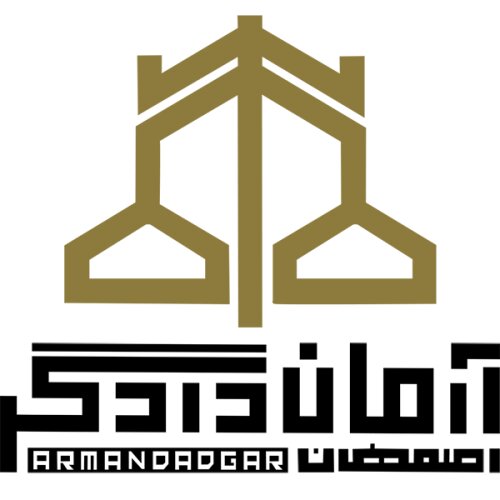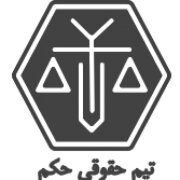Best Lawyers in Iran
Share your needs with us, get contacted by law firms.
Free. Takes 2 min.
Or refine your search by selecting a city:
List of the best lawyers in Iran
Iran Legal Questions answered by Lawyers
Browse our 1 legal question in Iran and read the lawyer answers, or ask your own questions for free.
- Do you make owner and builder contract agreement
- I want to build a building and would like to hand-over to a builder the developement. What kind of contract i should make for my security of work is performed perfectly with binding commitments.
-
Lawyer answer by Milani Law Firm
If you are the owner of the land and wish to delegate construction to a third party, a contracting agreement is recommended.
Read full answer
About hiring a lawyer in Iran
Legal representation in Iran is crucial, especially when dealing with complications involving Iranian law. Hiring a lawyer in Iran involves identifying a competent and experienced professional who has specialized knowledge in the respective area of law you require assistance with. Lawyers in Iran are usually referred to as 'dadvocates' and are required to be members of the Iranian Central Bar Association or a local bar association, both of which ensure that the practicing attorneys uphold ethical standards. To hire a lawyer, you can either contact the bar association for a referral or seek recommendations from friends, acquaintances, or other legal professionals.
Why You May Need a Lawyer
In Iran, you may require a lawyer in a number of situations. These include criminal cases, civil disputes such as property or contract issues, family matters such as divorce or custody battles, business transactions, intellectual property issues, and immigration matters. Lawyers can also provide advice on complex legal matters, help to understand and apply laws relevant to your situation, and represent you in court proceedings if necessary. Good legal representation can be instrumental in protecting your rights and interests.
Local Laws Overview
Iran’s legal system is based on civil law principles with an integrated element of Islamic Sharia law. The Constitution is the supreme law in Iran, and the judiciary is independent, subject to the Supreme Leader’s purview. The laws that are most relevant for lawyers in Iran span across numerous segments such as criminal law, civil law, family law, contract law, property law, intellectual property law, business and employment law, and immigration law. The interpretation and application of these laws can often be complex due to the influence of both civil law principles and religious ordinances, and hence it is essential to engage a lawyer for proper representation.
Frequently Asked Questions
1. Can foreign nationals hire lawyers in Iran?
Yes, foreign nationals can hire lawyers in Iran for representation or legal advice on matters concerning Iranian law.
2. How much do lawyers in Iran charge?
The fees of lawyers in Iran can vary greatly depending on the complexity of the case, the experience of the lawyer, and the area of speciality.
3. Can lawyers from other countries practice in Iran?
Generally, only those who are members of the Iranian Central Bar Association or a local bar association can practice law in Iran.
4. What is the role of the Iranian Central Bar Association?
The Iranian Central Bar Association governs the practice of law in Iran, including issuing licenses to lawyers, ensuring ethical standards, and providing referrals for those in need of legal representation.
5. Can a lawyer in Iran represent me in court?
Yes, a lawyer in Iran can represent clients in court, argue cases on their behalf, and provide legal advice.
6. What sort of cases do Iranian lawyers specialize in?
Iranian lawyers can specialize in various areas including criminal law, civil law, family law, property law, intellectual property law, and more.
7. How can I find a reputable lawyer in Iran?
You can find a reputable lawyer in Iran through referrals from the Iranian Central Bar Association, or through perspectives from friends, acquaintances, or other legal professionals.
8. Can I change my lawyer after hiring?
Yes, a client has the right to change his or her lawyer. However, it is advisable to discuss the implications and any financial obligations with the current counsel before switching.
9. Is there a language barrier when engaging a lawyer in Iran?
While Persian (Farsi) is the primary language used in Iran, many lawyers in large cities also speak English, aiding clients who do not speak Persian.
10. Are there laws protecting client confidentiality in Iran?
Yes, Iranian law respects professional confidentiality. Lawyers are obliged not to disclose information revealed by their client without the client's consent.
Additional Resources
For more help or information, one can consult with the Iranian Central Bar Association. Additionally, many online legal directories and forums provide useful insights and referrals for available and experienced lawyers in Iran.
Next Steps
If you believe you need legal assistance in Iran, identify a lawyer or law firm that specializes in your required area, and set up an initial consultation. This meeting will provide you with an opportunity to discuss the specifics of your case, understand how the lawyer can assist, and go over the potential costs. Ensure that you choose a professional you feel comfortable with and who can adequately represent you in legal matters.
Lawzana helps you find the best lawyers and law firms in Iran through a curated and pre-screened list of qualified legal professionals. Our platform offers rankings and detailed profiles of attorneys and law firms, allowing you to compare based on practice areas, experience, and client feedback.
Each profile includes a description of the firm's areas of practice, client reviews, team members and partners, year of establishment, spoken languages, office locations, contact information, social media presence, and any published articles or resources. Most firms on our platform speak English and are experienced in both local and international legal matters.
Get a quote from top-rated law firms in Iran — quickly, securely, and without unnecessary hassle.
Disclaimer:
The information provided on this page is for general informational purposes only and does not constitute legal advice. While we strive to ensure the accuracy and relevance of the content, legal information may change over time, and interpretations of the law can vary. You should always consult with a qualified legal professional for advice specific to your situation.
We disclaim all liability for actions taken or not taken based on the content of this page. If you believe any information is incorrect or outdated, please contact us, and we will review and update it where appropriate.
Refine your search by selecting a practice area.
Accidents & Injuries
Banking & Finance
Bankruptcy & Debt
Business
Civil & Human Rights
Consumer Rights
Corporate & Commercial
Criminal Defense
Employment & Labor
Energy, Environment & ESG
Family
Immigration
Insurance
Intellectual Property
Lawsuits & Disputes
Media, Technology and Telecoms
Notary Services
Private Client
Real Estate
Browse law firms by city in Iran
Refine your search by selecting a city.




































